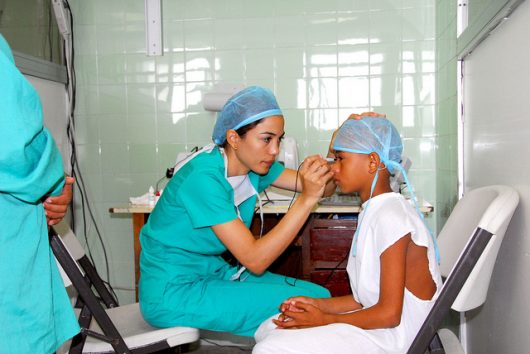The Link Between Medical Care and Alleviation of Poverty
 New studies have found a strong link between access to medical care and the alleviation of poverty. Authors of the research claim that improved healthcare in especially vulnerable regions can help lift people out of impoverishment. They argue that disease can act as a “poverty trap”: individuals who are sick are less likely to work and make money, thus reducing their chances of social mobility. Furthermore, breadwinners with sick family members often have to pay medical expenses or transportation costs, which increases the economic burden on their backs, perpetuating their poverty.
New studies have found a strong link between access to medical care and the alleviation of poverty. Authors of the research claim that improved healthcare in especially vulnerable regions can help lift people out of impoverishment. They argue that disease can act as a “poverty trap”: individuals who are sick are less likely to work and make money, thus reducing their chances of social mobility. Furthermore, breadwinners with sick family members often have to pay medical expenses or transportation costs, which increases the economic burden on their backs, perpetuating their poverty.
The relationship between bad health and poverty can be a vicious cycle. The poor are often unable to afford what is needed to maintain good health for themselves and their family members. Impoverished areas also routinely suffer from a lack of information on healthy practices and people who promote social services for health-related issues. This leads to a deterioration of the community’s health and, consequently, the perpetuation of poverty in it.
Researchers argue that good medical care and alleviation of poverty come hand in hand. They are advocating for policies which increase the accessibility of healthcare and improve its quality. This has a dual effect on a nation’s well being: not only does it keep its population healthy, but it helps to lift them out of poverty and thus stimulates the economy. The authors of these studies point to Rwanda as a success story for this type of policy.
Beginning in 2005, the Rwandan government partnered with a variety of international organizations to help improve and extend access to healthcare throughout the nation for all of its citizens The results have been astounding. In the last decade, the country has experienced the greatest drop in deaths associated with HIV in the world — 78 percent. Mortality rates of children under 5 fell 65 percent in the same period. Between 2005 and 2010, more than 1 million Rwandans lifted themselves out of poverty. Life expectancy in the country has risen from 48 to 58.
Although keeping populations healthy is a good enough motive to improve healthcare, the extremely strong correlation between better medical care and alleviation of poverty should be an added motivation for governments and the international community to pursue these policies. The findings of these studies will hopefully help shed light on the importance of good healthcare in impoverished regions of the world.
– Alan Garcia-Ramos
Photo: Flickr
